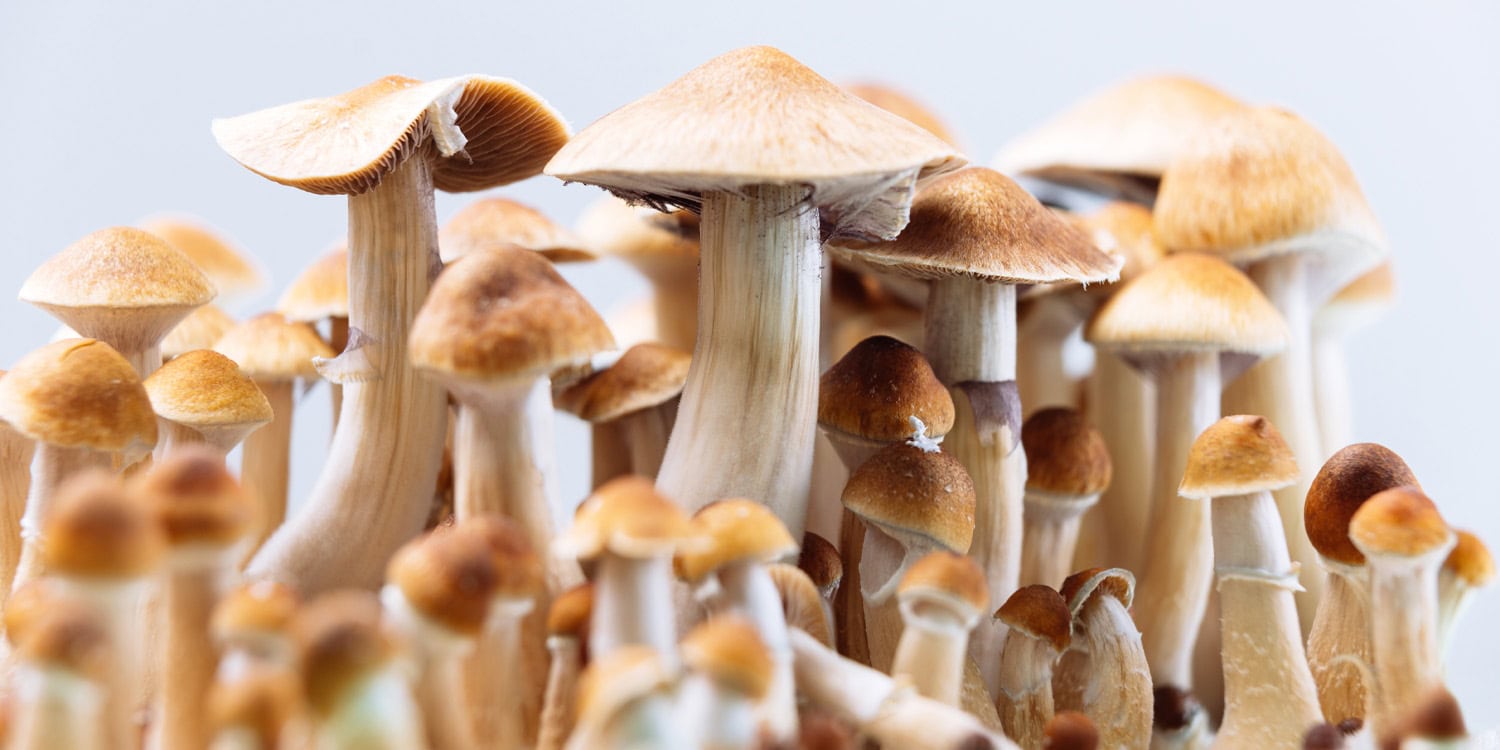New research published in Nature Mental Health indicates that psilocybin-assisted psychotherapy may offer comprehensive mental health benefits for individuals experiencing cancer-related distress. The study found that this treatment not only reduced symptoms of anxiety and depression but also reduced interpersonal sensitivity, hostility, obsession-compulsion, and somatization. These findings suggest that psilocybin could provide an innovative approach to addressing the profound psychological challenges associated with cancer.
Psilocybin-assisted psychotherapy is a relatively new approach that combines the administration of psilocybin, a psychedelic compound derived from certain mushrooms, with guided psychotherapy. Unlike traditional psychiatric medications, which are often taken daily and may take weeks to show effects, research suggests that psilocybin can produce rapid and lasting relief after just one or two carefully supervised sessions.
These sessions typically include preparation with a trained therapist, the psilocybin experience itself in a safe and supportive setting, and follow-up therapy to help process and integrate the experience. This method has shown promise in treating mood and anxiety disorders, particularly for patients facing existential challenges such as life-threatening illnesses.
For cancer patients, the psychological toll can be overwhelming, often manifesting as depression, anxiety, and emotional distress that significantly affect quality of life and clinical outcomes. Standard treatments, including therapy and antidepressant medications, frequently fall short in effectiveness and may be accompanied by delayed onset or undesirable side effects. Psilocybin-assisted psychotherapy offers a potential alternative, with rapid and sustained benefits.
While prior research has demonstrated psilocybin’s ability to reduce anxiety and depression in cancer patients, many individuals with cancer experience additional mental health symptoms, such as interpersonal sensitivity, hostility, somatization, and obsessive-compulsive tendencies. These symptoms exacerbate the emotional burden of cancer, yet their response to psilocybin-assisted psychotherapy had not been systematically investigated.
“As a psychiatrist, I am deeply committed to discovering innovative treatments for complex psychiatric disorders,” said study author Petros D. Petridis, a clinical assistant professor of psychiatry at NYU Grossman School of Medicine and an investigator at the NYU Langone Center for Psychedelic Medicine.
“Patients with cancer endure profound psychological challenges alongside their physical illness, yet many find little relief from existing antidepressant medications. By studying psilocybin-assisted therapy for this population, my goal is to offer hope and contribute to the development of novel treatment strategies for those who have lacked effective mental health care.”
The researchers analyzed previously unpublished data from two randomized, placebo-controlled trials conducted at New York University and Johns Hopkins University. These trials included 79 participants who were experiencing clinically significant anxiety and depression related to cancer. The participants ranged in age from their 30s to their 70s, with an average age of 55, and most had advanced or recurrent cancers.
Participants in both studies were randomly assigned to receive either a high dose of psilocybin or a control treatment, followed weeks later by the alternate intervention. The control treatments varied slightly between the trials, including niacin or a very low dose of psilocybin designed to mimic a placebo. Each participant underwent two psilocybin or placebo sessions, with psychotherapy provided before, during, and after each session.
To evaluate the treatment’s impact, the researchers used a well-established psychological assessment tool called the Brief Symptom Inventory. This questionnaire measures nine psychiatric symptom dimensions, including anxiety, depression, hostility, interpersonal sensitivity, somatization, obsession-compulsion, paranoia, phobia, and psychosis. Participants completed the questionnaire at baseline, after their first and second treatment sessions, and six months later.
The results indicated that psilocybin-assisted psychotherapy significantly reduced six psychiatric symptom dimensions: anxiety, depression, interpersonal sensitivity, hostility, obsession-compulsion, and somatization. These improvements were observed within weeks of the first psilocybin session and persisted for up to six months.
“I was surprised by the consistent improvements across multiple psychiatric dimensions and the absence of significant adverse effects, such as paranoia, phobia, or psychosis,” Petridis told PsyPost. “The lasting impact of a single psilocybin session combined with psychotherapy was particularly remarkable.”
For symptoms like somatization, which involves the experience of physical symptoms without clear medical explanations, the improvements were especially noteworthy. Many cancer patients deal with chronic pain or discomfort that conventional treatments fail to address, so these findings suggest psilocybin could offer relief beyond traditional approaches.
The effects were consistent across the two clinical trial sites, adding reliability to the findings. Participants who received psilocybin in their first session showed early improvements, while those who began with the control treatment experienced benefits once they received psilocybin in the second phase of the study.
“Our research suggests that psilocybin-assisted therapy may provide a safe and effective way to improve not only anxiety and depression but also other distressing symptoms, such as interpersonal sensitivity, hostility, somatization, and obsessive-compulsive tendencies in patients with cancer,” Petrides said. “This underscores the potential of psychedelics to serve as a comprehensive mental health treatment for this population.”
Despite these encouraging results, the study had limitations. Most participants were white, well-educated, and financially secure, limiting the applicability of the findings to more diverse populations. Additionally, many participants had previous experience with psychedelics, which could have influenced their expectations and responses. The therapists involved in the trials also frequently guessed whether participants had received psilocybin, introducing potential bias.
“Functional unblinding may have influenced results,” Petrides noted. “Future studies should use more robust active placebos and measure expectancy biases.”
Nonetheless, the study adds to a growing body of evidence supporting psilocybin-assisted psychotherapy as a promising treatment for mental health challenges.
“My long-term goals include validating these findings in larger, more diverse populations and exploring psilocybin’s potential in other palliative care settings,” Petrides explained. “Ultimately, with sufficient research, I hope to integrate these therapies into mainstream care to enhance mental health outcomes.”
“Psilocybin-assisted psychotherapy represents a promising paradigm shift in mental health treatment. It’s essential to approach this therapy with rigorous clinical protocols to ensure safety and efficacy.”
The study, “Psilocybin-assisted psychotherapy improves psychiatric symptoms across multiple dimensions in patients with cancer,” was authored by Petros D. Petridis, Jack Grinband, Gabrielle Agin-Liebes, Connor J. Kinslow, Richard J. Zeifman, Michael P. Bogenschutz, Roland R. Griffiths, and Stephen Ross.




